Should doors be painted the same color as walls? Expert advice on when to go all out and when to mix it up
Design experts on when and whether doors should be painted the same color as walls for an elegant, enveloping effect
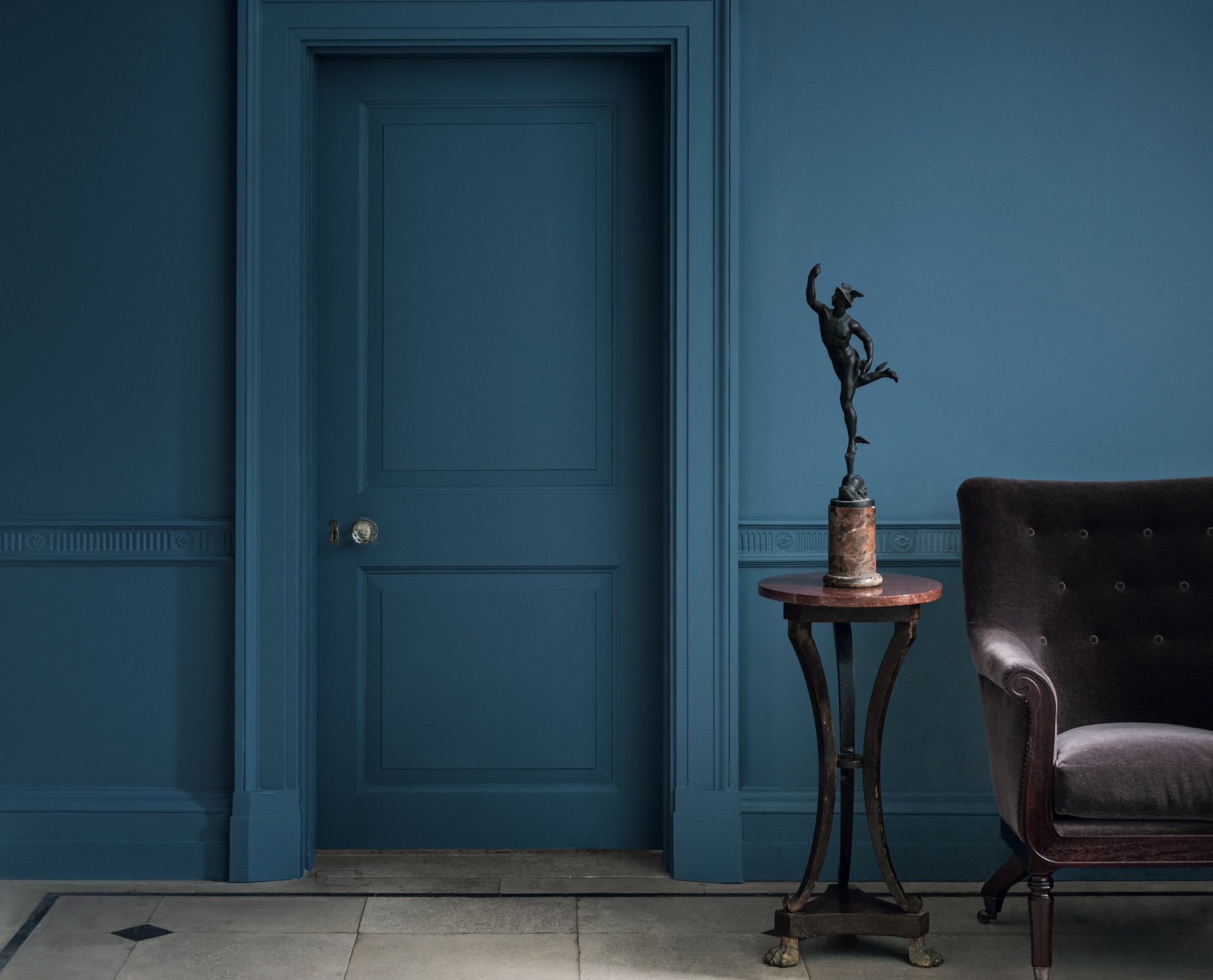
Should doors be painted the same color as walls? It's a question that's becoming more frequently asked as the 'color drenching' trend continues to gather favor. Color drenching allows you to create a cocooning feel in a room, and is certainly a stylish approach to painting doors, among others.
'There are a variety of different approaches to painting doors and woodwork, each creating a different atmosphere in a space,' explains Ruth Mottershead, Creative director Little Greene. 'For an enveloping and intimate feel embrace ‘color drenching’ and paint your doors, woodwork, walls and the ceiling in a single color.
'If painting all elements in one shade feels a little overwhelming, select a group of tonally coordinating colors and utilise across the room; this gentle contrast will create a harmonious and considered feel with a subtle color drenching effect.'
Of course, you can also go bold and paint your doors in a contrasting color to the walls to create impact and variation to the space. This will help you choose when to mix and match.
Should doors be painted the same color as walls?
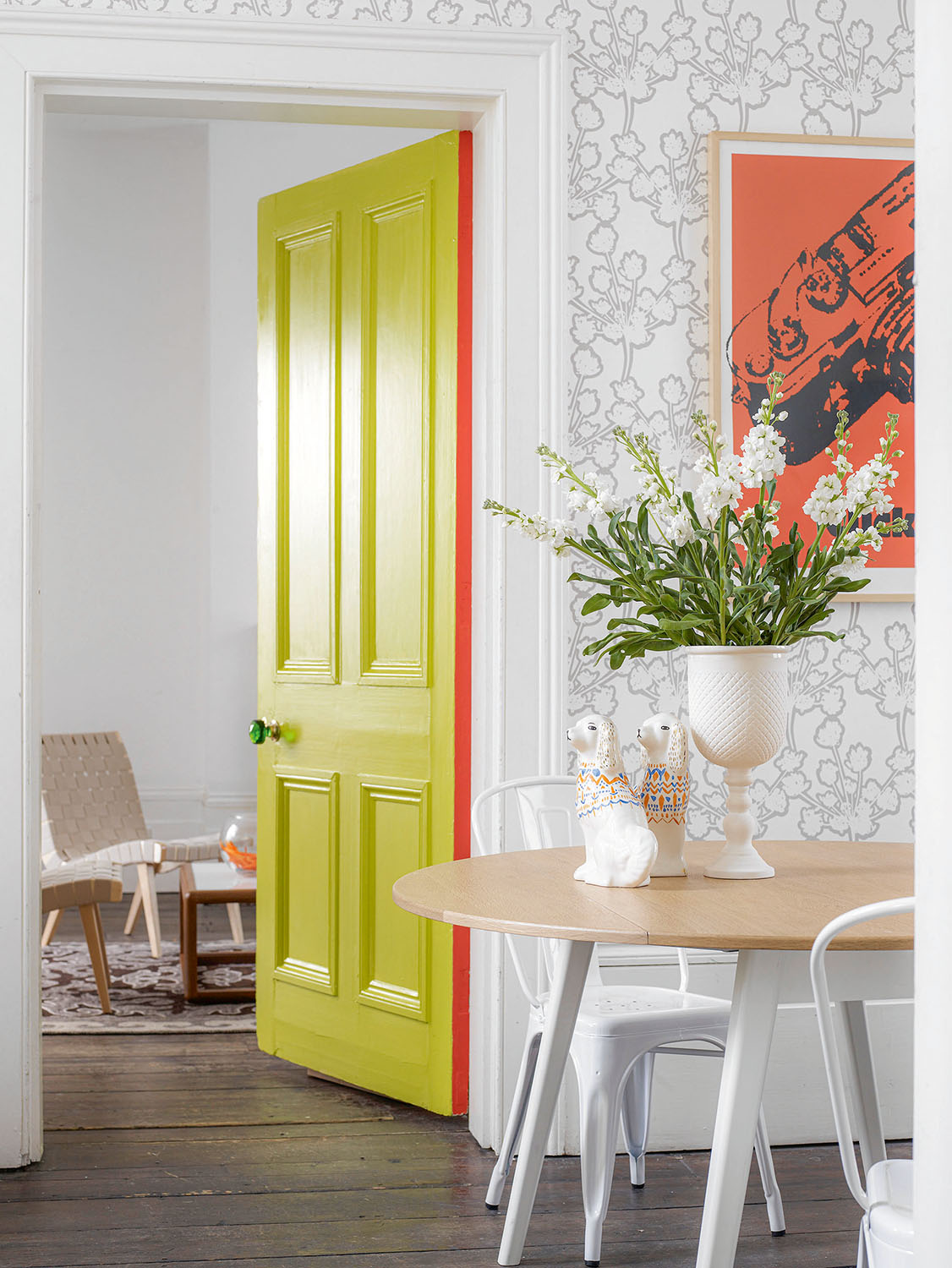
'Doors trims and the door themselves are conventionally painted a different color to walls – with white or at least paler shades the preferred option,' says Pam Gruhn, founder, Frenchic.'However, more recently, we’ve seen an interior design trend of doors being painted the same color as walls.'
Justyna Korczynska, senior designer at Crown, says: 'If you paint walls, skirting, doors, cupboards, radiators – and even window frames – in the same color it will look thoughtful and sophisticated. This works particularly well with soft greyed blues and greens as well as any neutral.'
There are a number of reasons why you might want to 'color drench' your doors and walls, some of which we've rounded up below so you can decide whether tonal or contrasting interior doors are for you.
The Livingetc newsletters are your inside source for what’s shaping interiors now - and what’s next. Discover trend forecasts, smart style ideas, and curated shopping inspiration that brings design to life. Subscribe today and stay ahead of the curve.
Color drenching doors and walls can divert attention
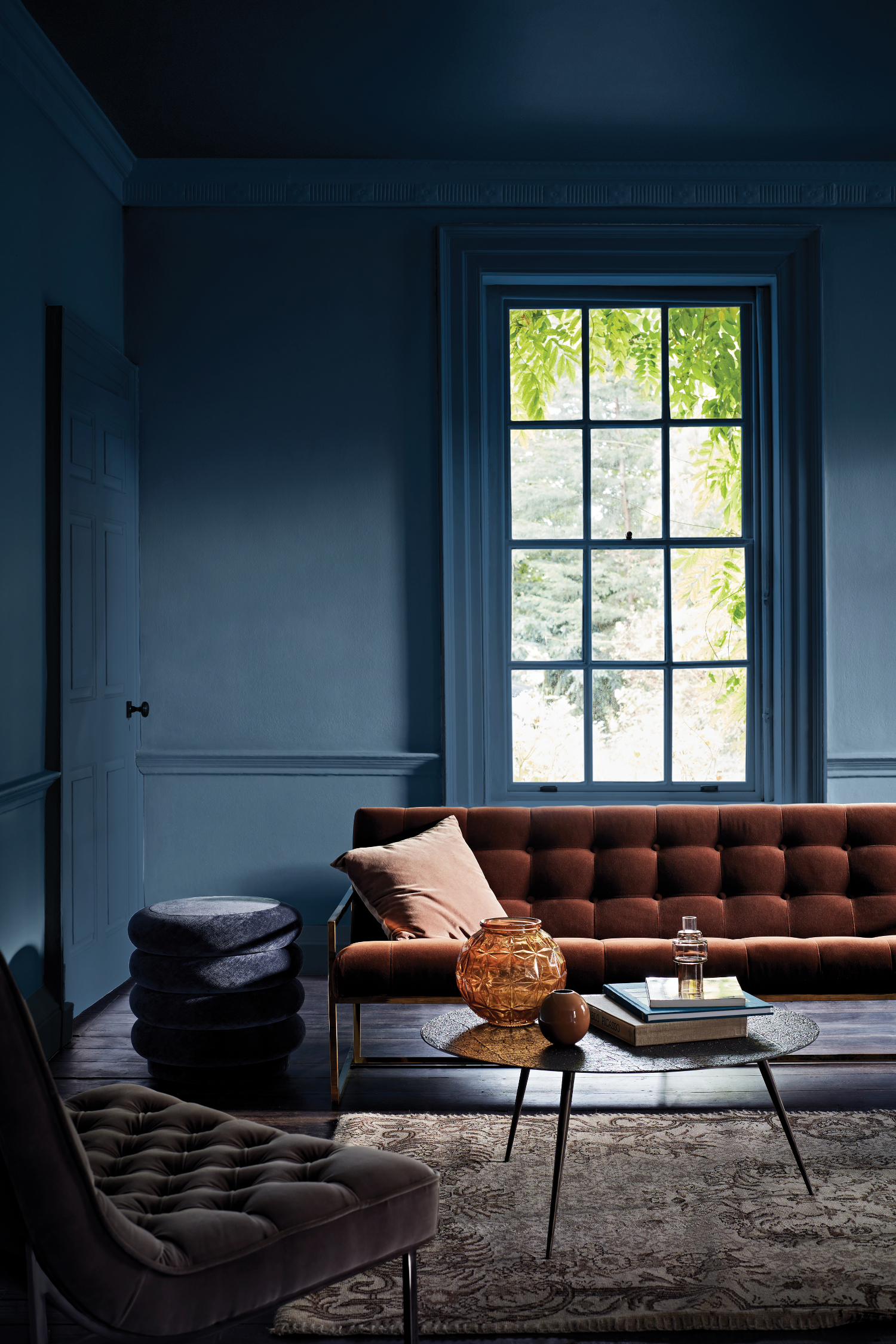
If your doors aren't quite as visually appealing as you'd like, painting them the same color as the walls - and color drenching the whole space - is a clever way to hide it.
'One of the main reasons to paint your interior doors the same color as the walls around them is if you are not particularly fond of the doors and want them to blend in,' says Frenchic's Pam Gruhn.
And Little Greene's Ruth Mottershead says: 'If you're looking to hide a door, simply incorporate it fully into your design scheme in a tonal palette or by painting it the same color as your walls, which will camouflage the door, integrating it into the space. Mid tone and darker colors work particularly well in this situation, harnessing the character and depth of a space, creating intimacy and warmth.'
Painting the doors the same color as the walls feels tranquil
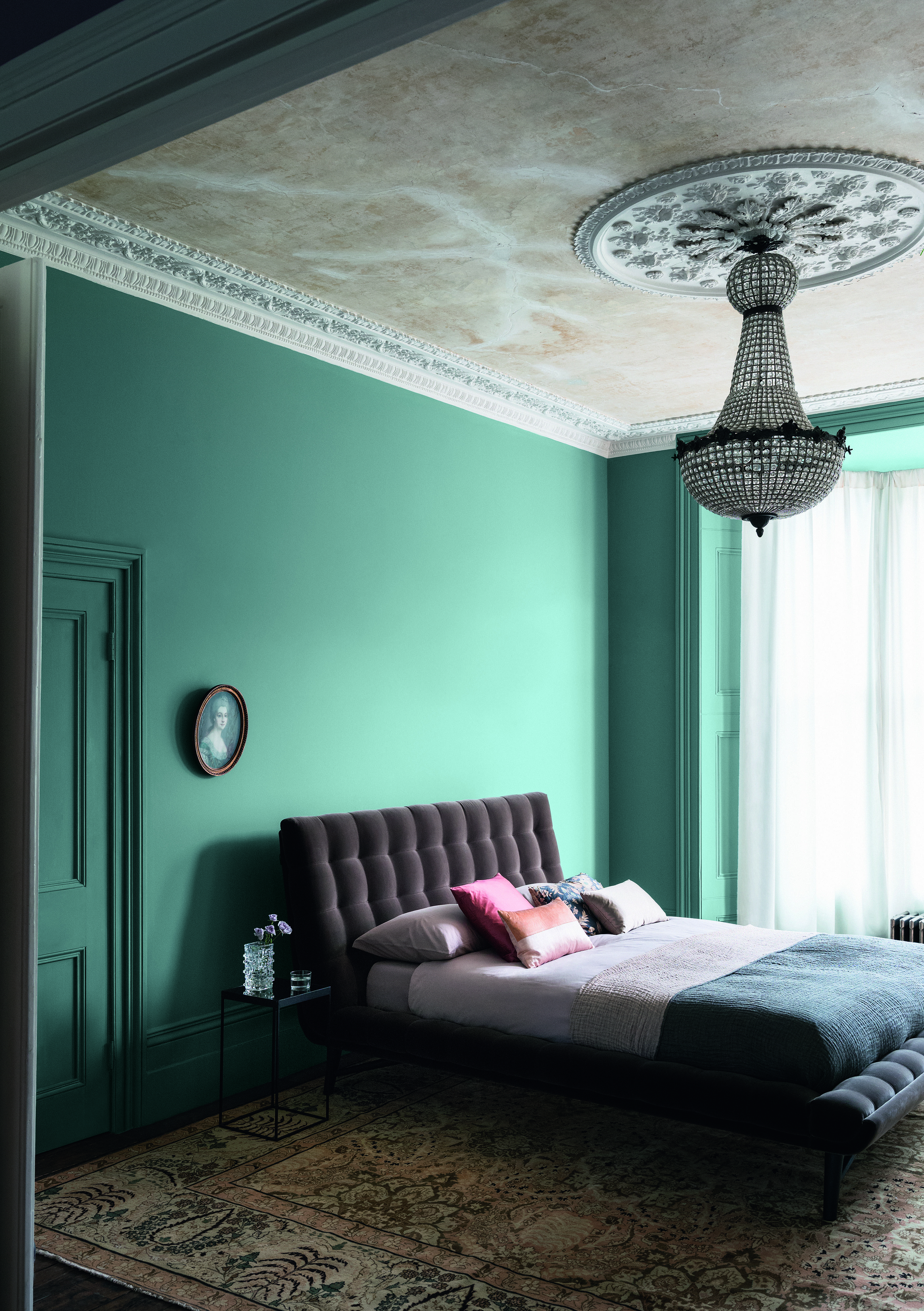
By painting the doors the same color as the walls, you can create a calming space that's streamlined and chic.
Pam Gruhn says: 'Some people may like to make a bold design statement and paint their interior doors in strong colors that contrast the walls, such as black. But if keeping a sleek and ultra-modern look is important to you, then it's definitely worth keeping everything the same color.
'Having doors painted the same as the walls is a simple trick for a pared-down look that makes the whole space look effortlessly sleek and chic.'
Make a small space appear larger with a tonal look
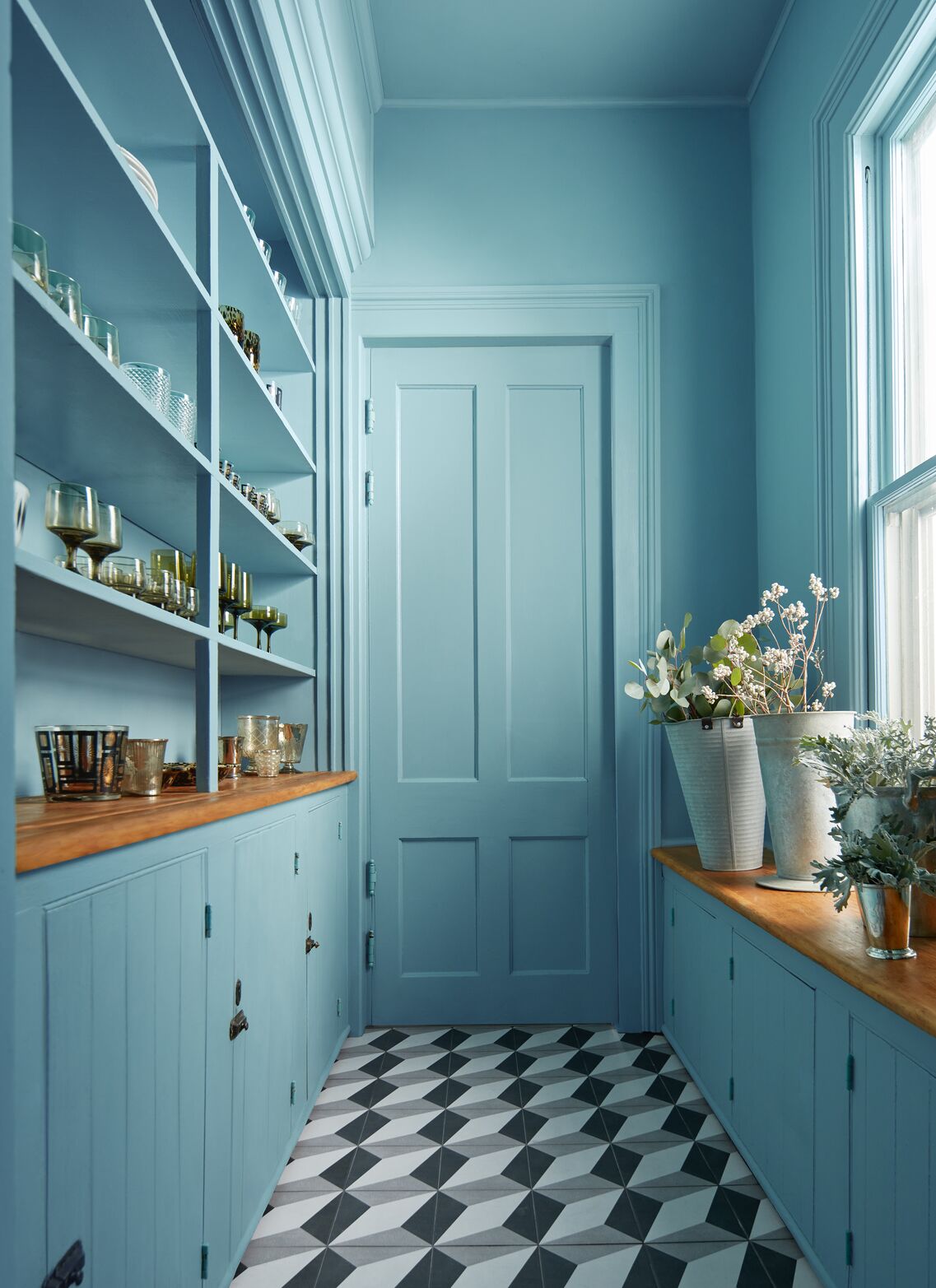
Short on space? If you paint doors the same color as walls, you can actually create the impression of a larger room.
'This approach can be used to create the illusion of space,' says Ruth Mottershead. 'Simply paint the doors, walls and ceiling in the same shade to extend the walls upwards. This works particularly well in narrow hallways, pantries or galley kitchens that may be lacking in natural light.'
Helen Shaw, Benjamin Moore Director, adds: 'Creating an all-encompassing floor to ceiling finish in one color, including trims, skirting boards and doors, cleverly creates the illusion of a larger space as it blurs the edges.
'This color drenching effect can be especially useful when working with a small space.'
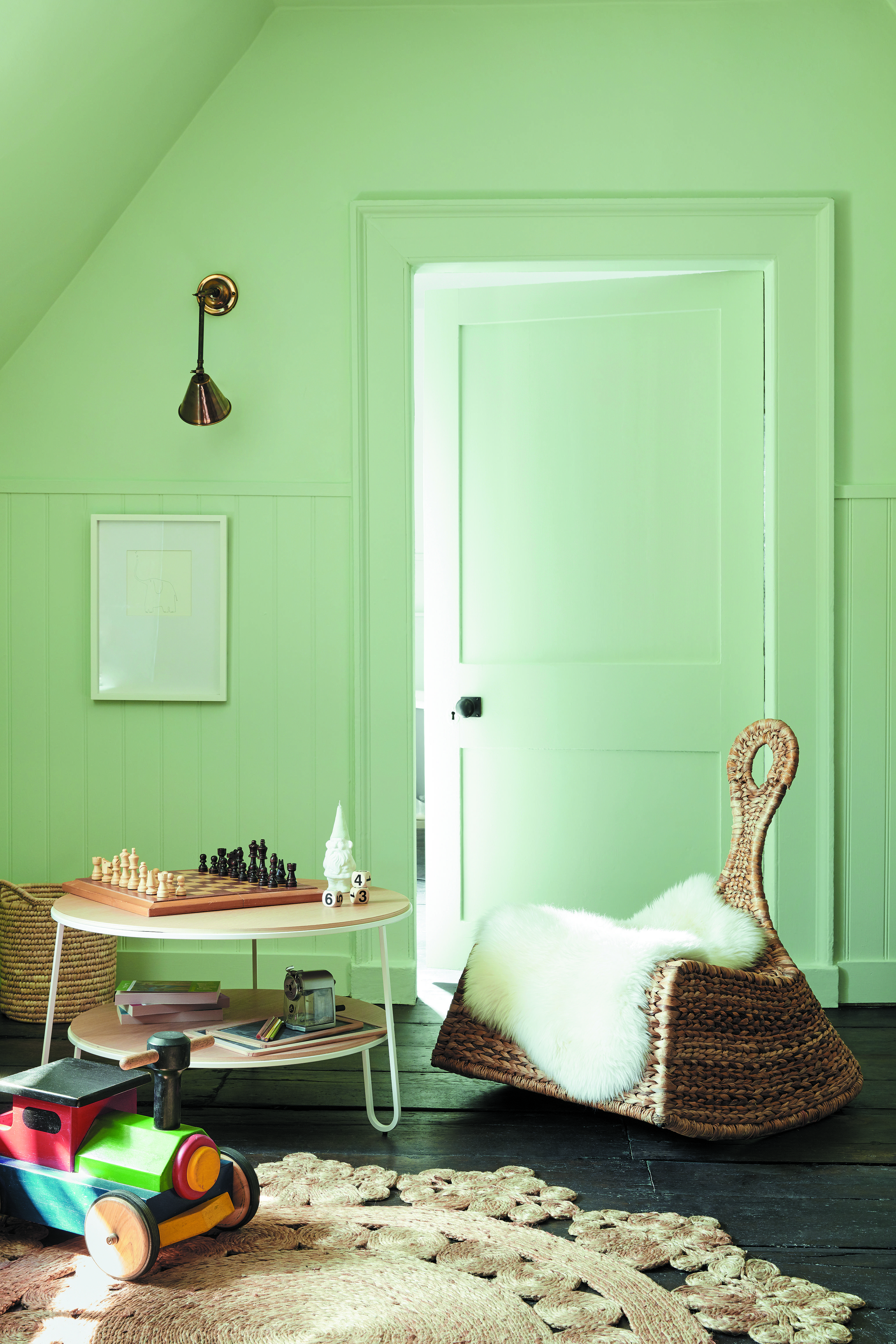
And Pam Gruhn agrees it's a clever trick to create a calm feel in a small room, explaining: 'Small rooms tend to feel 'busy' if they have doors and trims painted different colors to the walls.
'There can be too much contrast in too constricted a space, and this does not promote a calm or cohesive feel.
'Small bedroom ideas and nursery ideas, where you may well be looking for ways to create a tranquil environment to promote relaxation and sleep, benefit greatly from a single color for trims, doors and walls.'
Include the door in feature color blocking
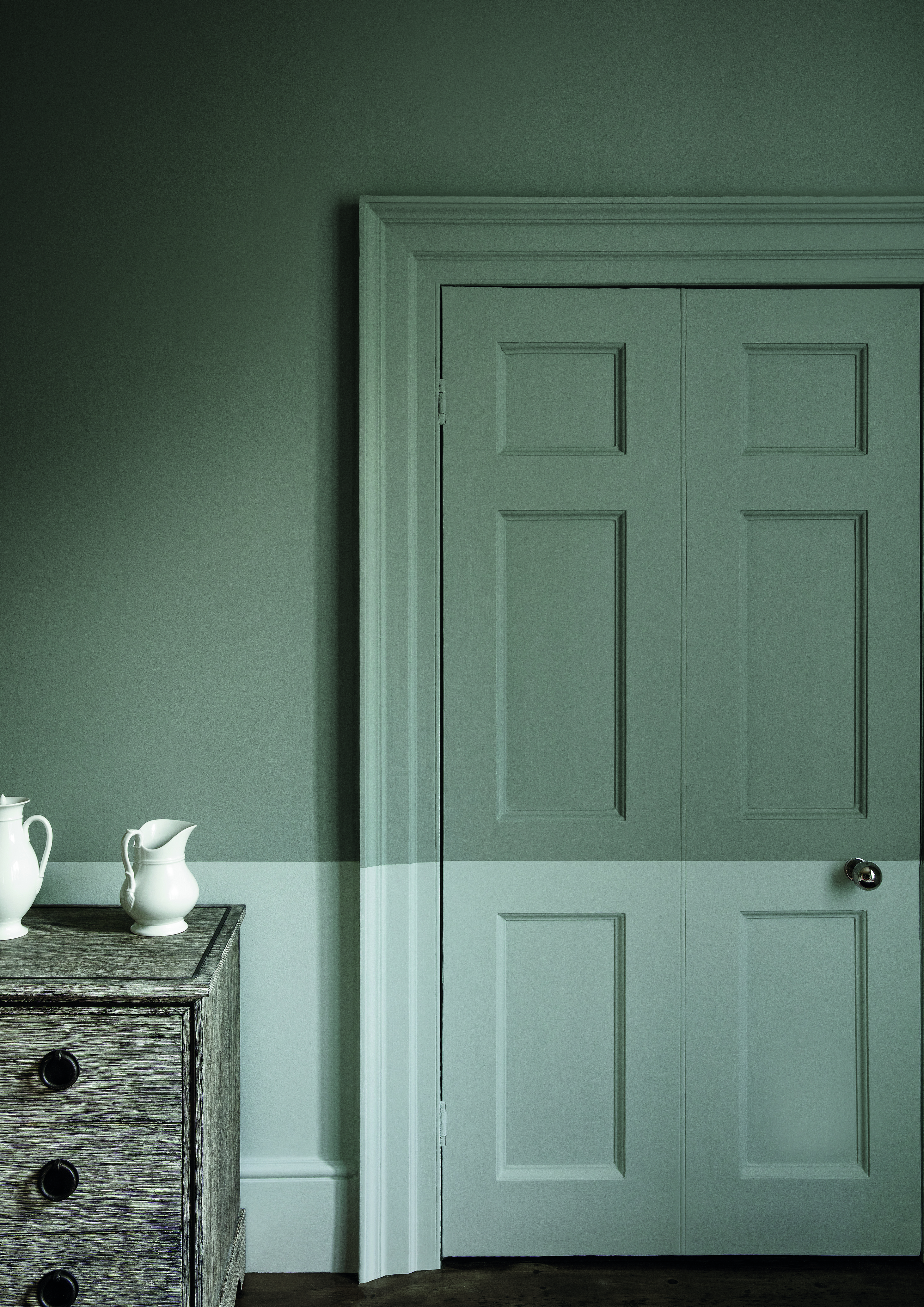
Don’t be constrained by ‘painting within the lines’, suggests Andy Greenall, Creative Director Paint & Paper Library.
He explains: 'Rather than letting the shape of the door guide you, create a block of color by painting a shape that sits across a door. To ensure the scheme remains sophisticated and elegant, opt for tonal colors.'
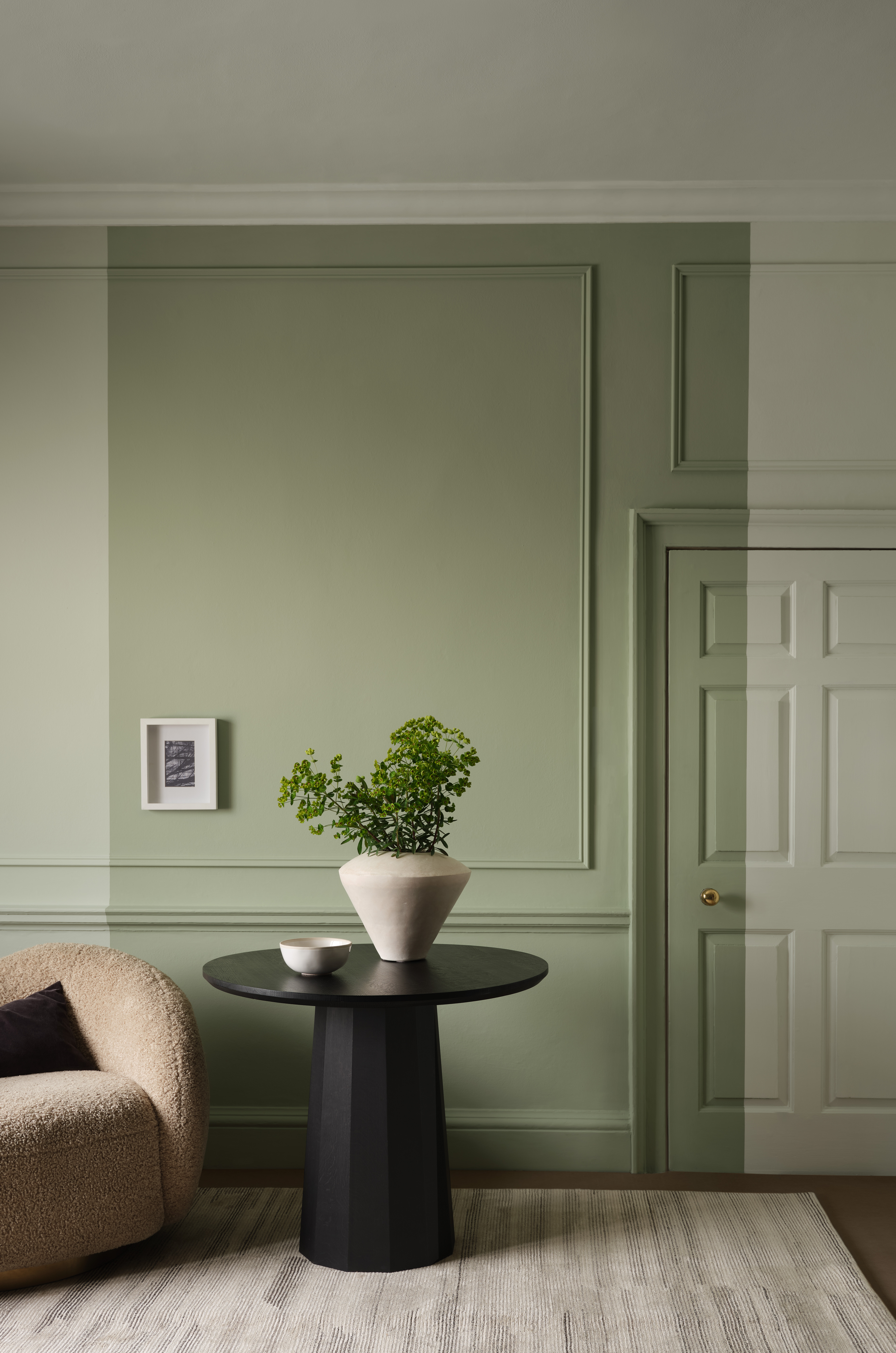
He continues: 'Graduating tones not only work in isolation but are wonderful alongside their color variations, providing subtle nuances of shade that create a gentle, coordinated feel.'
Know where it works best
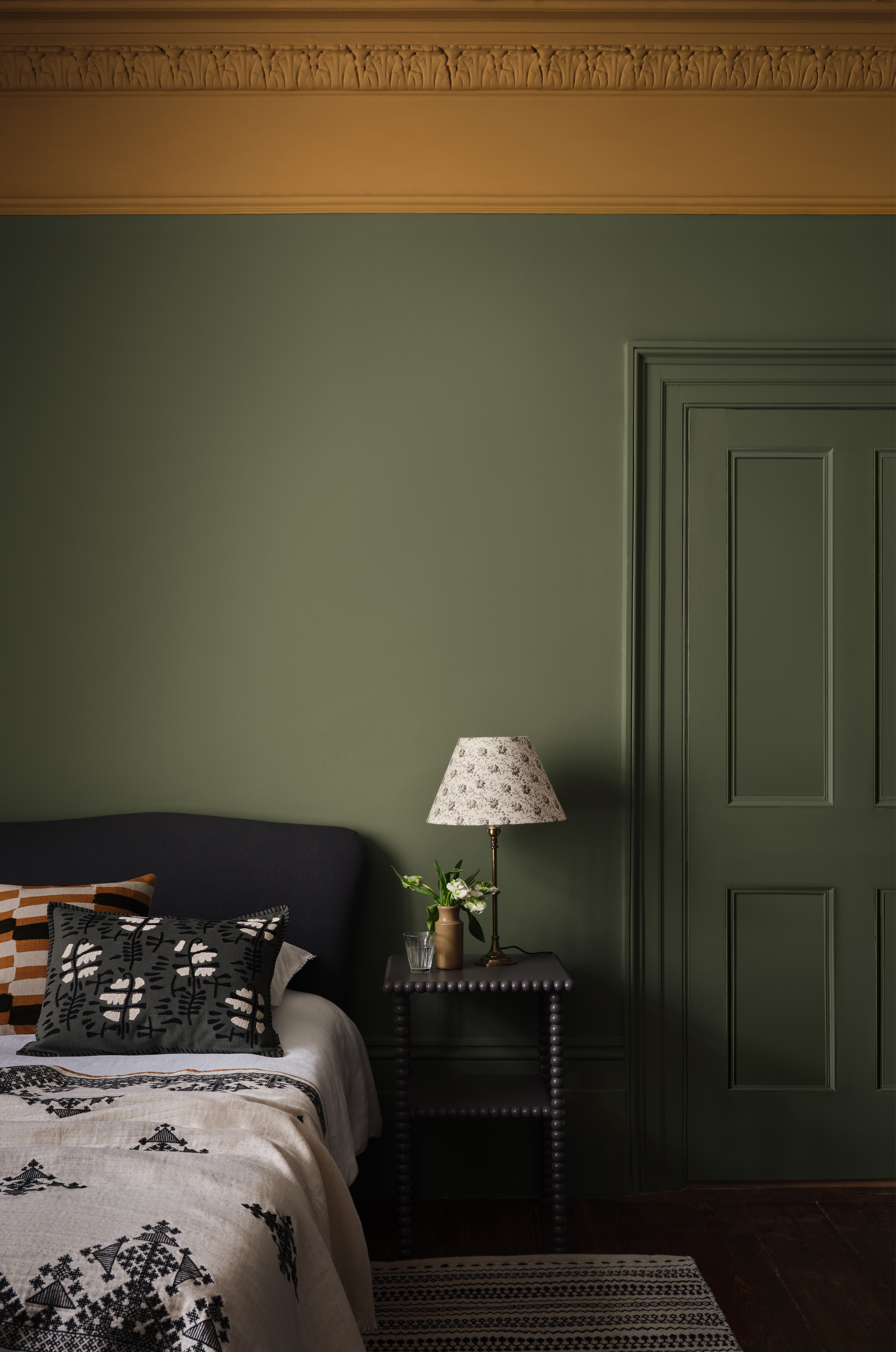
Certain rooms in the house lend themselves particularly well to the color drenching trend.
Painting the doors the same color as the walls will create a calming atmosphere, so works well in spaces that are used for relaxing; making ideal inspiration for bedroom and living room ideas.
It's also a brilliant for entryways, creating a great anchor for the rest of the house.
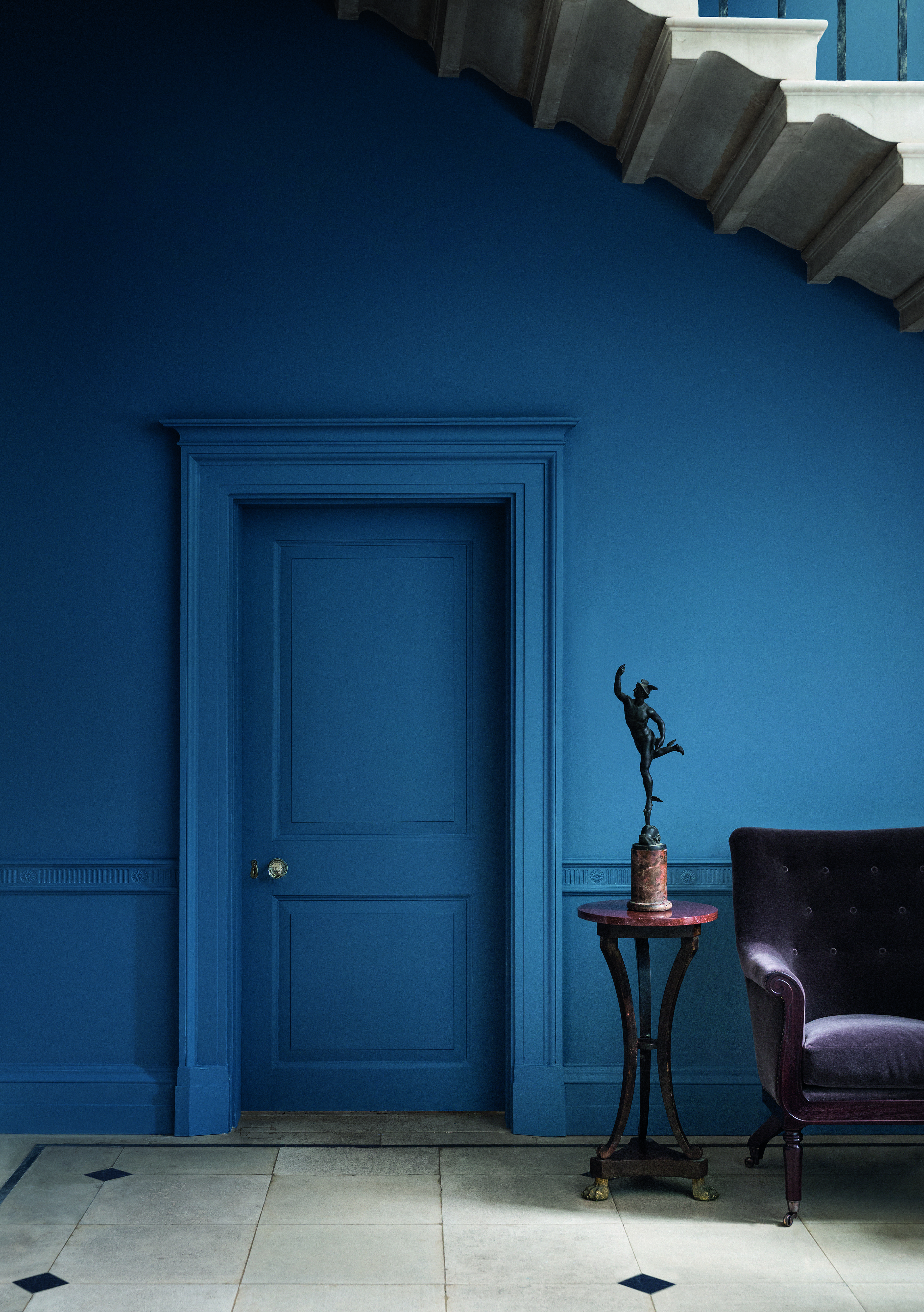
'Hallways are often visible through open doorways from multiple rooms, so are a great space for using a single color across all elements including doors,' says Andy Greenall. 'This will make it easier to choose a palette that interacts well with multiple rooms and colors throughout the home.'
Helen Shaw also agrees that the hallway is a good place to try color drenching, saying: 'The hallway is the room that not only greets guests entering the home but is also what usually connects one room to another.
'It is also often a fairly small and sometimes irregularly shaped room, so keeping the same color throughout on the walls and doors, like a white or neutral colour, creates harmony, continuity and a sense of space.'
Should doors be darker or lighter than walls?
There is no set rule as to whether you should paint your doors darker or lighter than the walls. And, of course, you can always paint them both the same color.
'Whether you paint doors lighter or darker than your walls should be determined by the effect you wish to create,' says Andy Greenall, Creative Director Paint & Paper Library.
'The beauty of architectural features such as doors or window frames is that they can provide multiple surfaces for color, allowing you to create a quirky or sophisticated design scheme.
'Tonal colors will create a gentle scheme that feels elegant and harmonious, whilst more contrasting colors will deliver a lively, impactful interior.'
Dark colors can work really well to add drama to a space if you don't feel confident enough to paint the whole room dark.
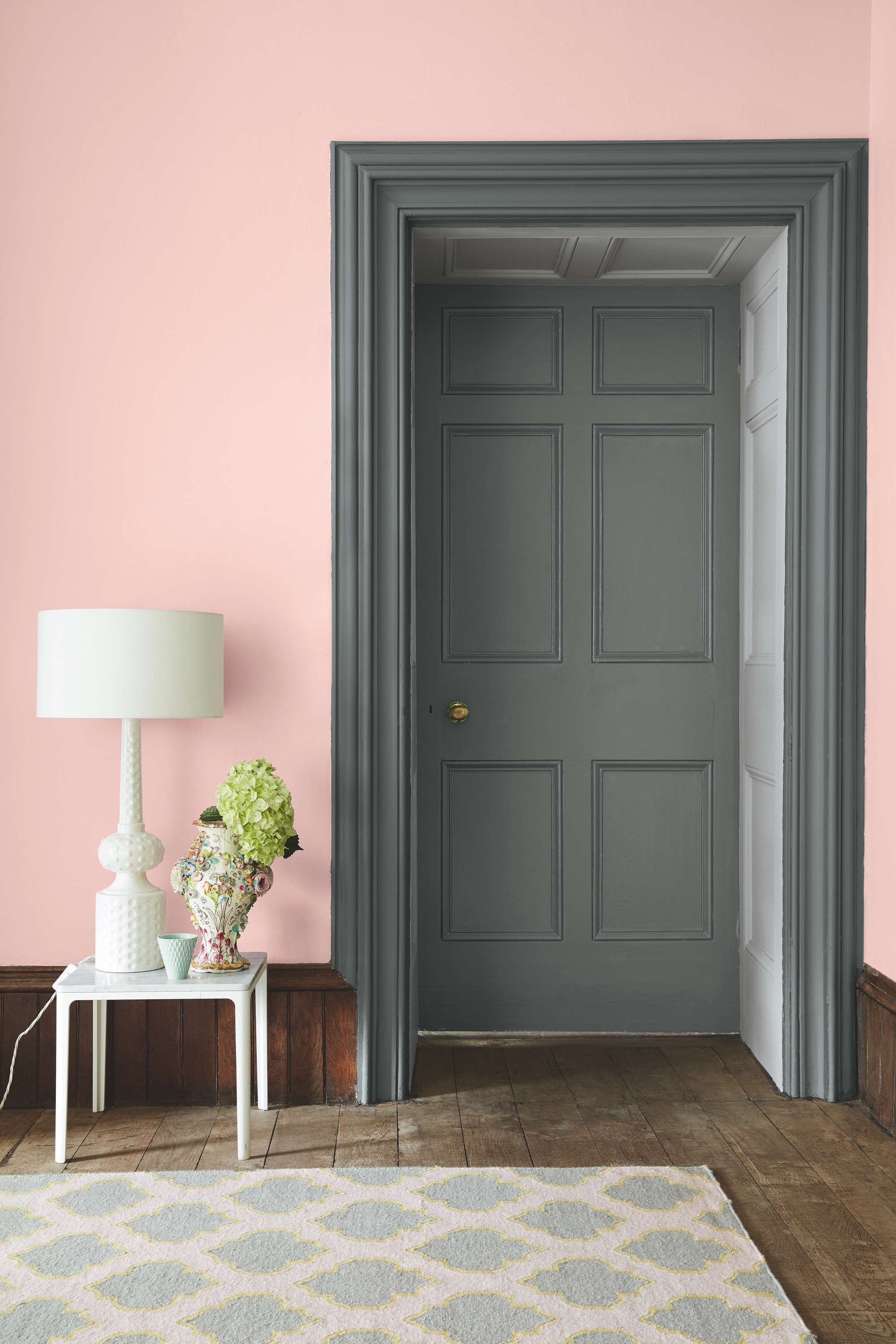
What color should doors be painted?
'The color you paint your doors is a personal choice, and is dependant on the atmosphere you wish to create in your home,' says Ruth Mottershead, Creative director, Little Greene.
'To create impact, opt to use one color across both walls and woodwork for a statement finish.
'If opting for a traditional white on a door, consider painting skirting and woodwork, almost framing the door, in a darker color such as ‘Lamp Black’ which will define the space.'
If you're a fan of maximalism in interior design, a lovely idea is to use bold wallpaper on the walls, and then pick out an accent color from the print to paint the doors and trims with. This will make a coordinating contrast and add a joyful shot of color.
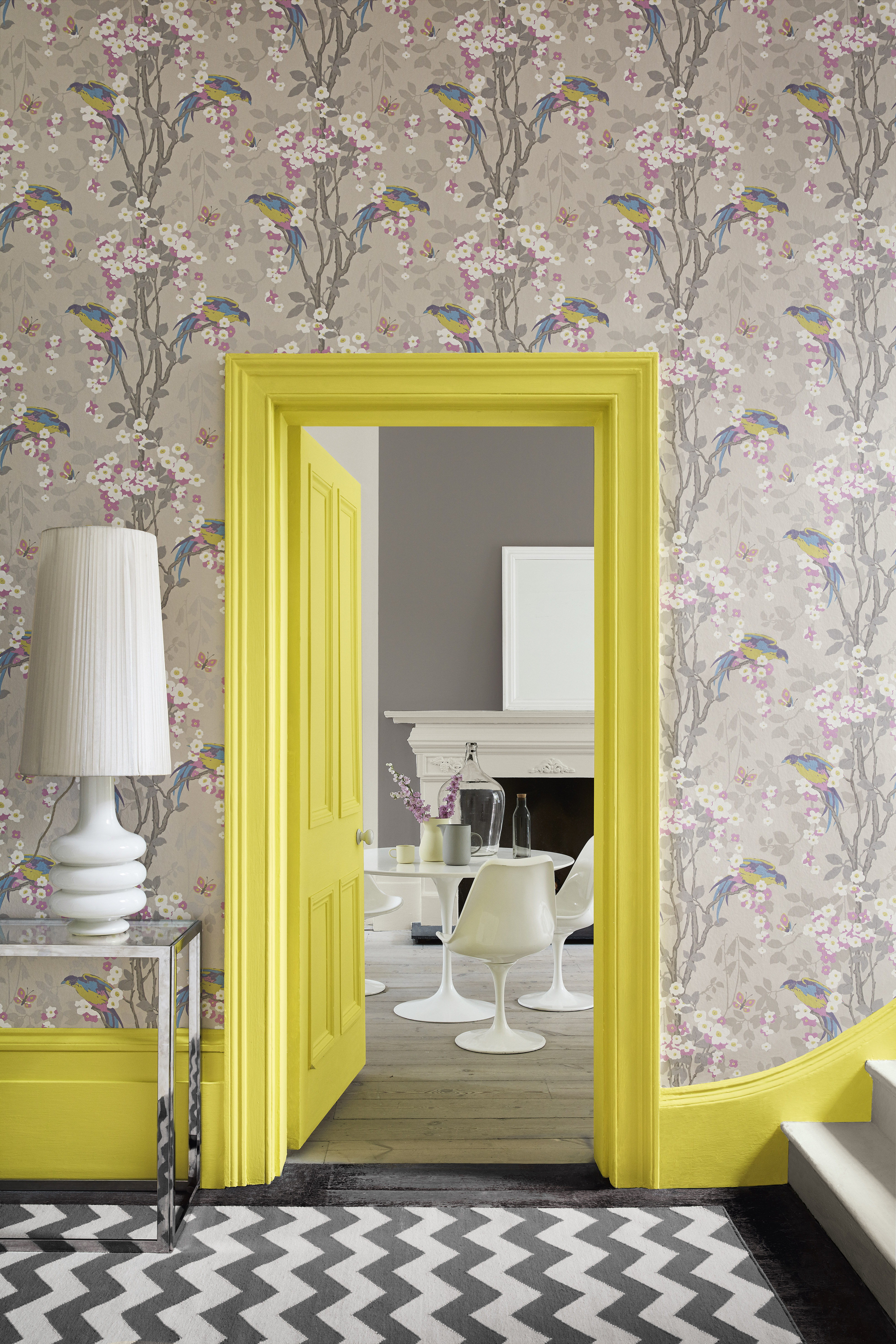
What color should I paint my interior doors if my walls are white?
'In schemes with white walls, doors are often painted white out of habit, but this has a big impact on the way that the room will feel,' says Andy Greenall. 'Consider adding a highlight color, be that a sophisticated grey or deep blue, on doors and woodwork to create a focal point to draw the eye.'
Benjamin Moore's Helen Shaw says the decision to paint the door in a color or stick to white as well should be driven by the overall decor scheme and feel you're trying to achieve.
She says: 'White walls provide the ideal canvas for a huge variety of colored doors and trims, from complimentary neutrals through to bold brights.
'As with all color choices however, the key is for your doors to reflect the overall feel of the room and house so, if your white walls are there to evoke a Japandi-style sense of calmness, then avoid bright, bold colors that could overwhelm the space.
'However, if you’re aiming for a vibrant statement and want a pop of bright throughout the house, your doors could become a colorful focal point.'
Ruth Mottershead agrees, adding: 'You can go bold and opt for a contrasting color on a door such as ‘Cape Red’ which, when used on a single door in an otherwise monochrome scheme, will create a dynamic colour highlight.'
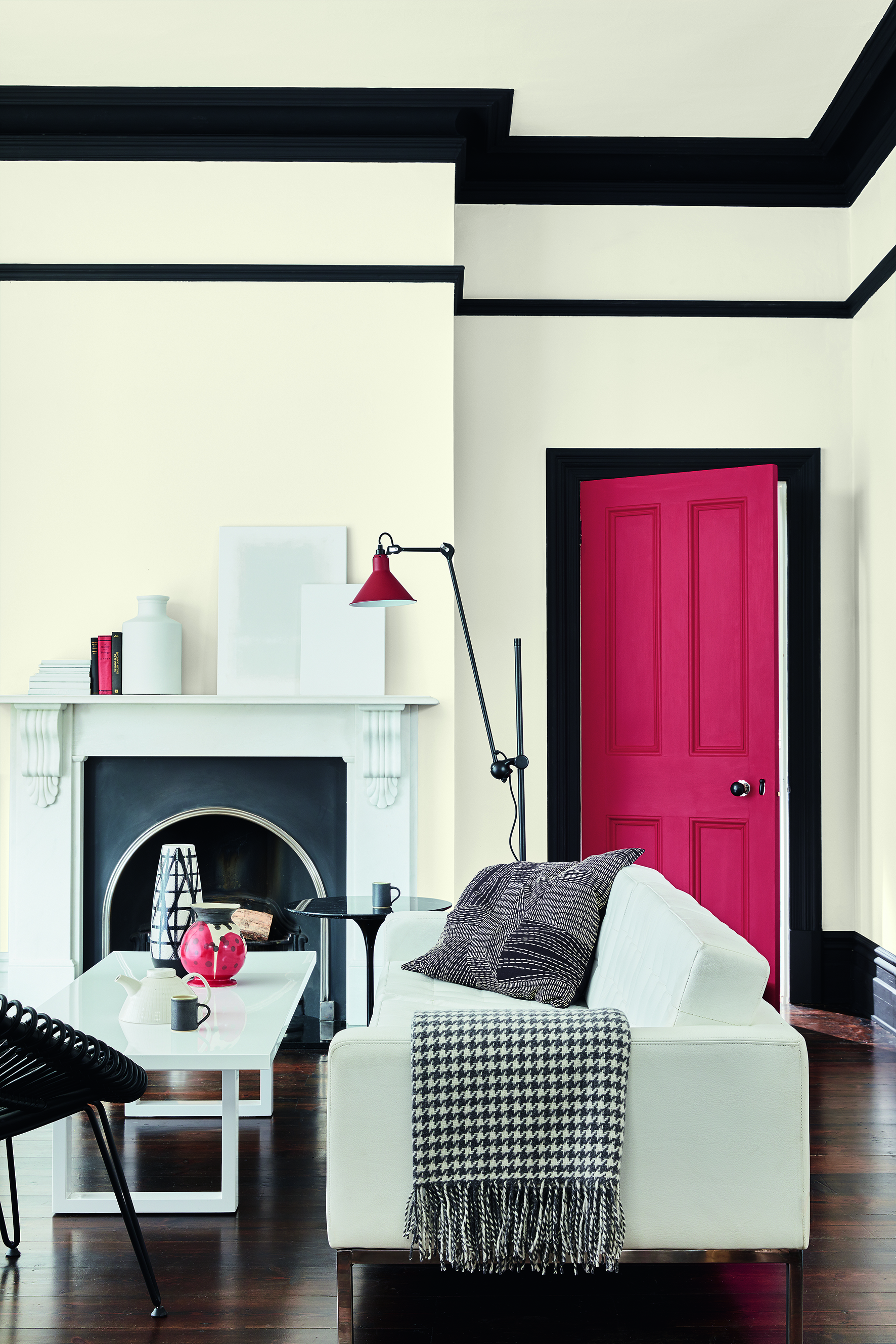
Ruth Doherty is a lifestyle journalist based in London. An experienced freelance digital writer and editor, she is known for covering everything from travel and interiors to fashion and beauty. She regularly contributes to Livingetc, Ideal Home and Homes & Gardens, as well as titles like Prima and Red. Outside of work, her biggest loves are endless cups of tea, almond croissants, shopping for clothes she doesn’t need, and booking holidays she does.